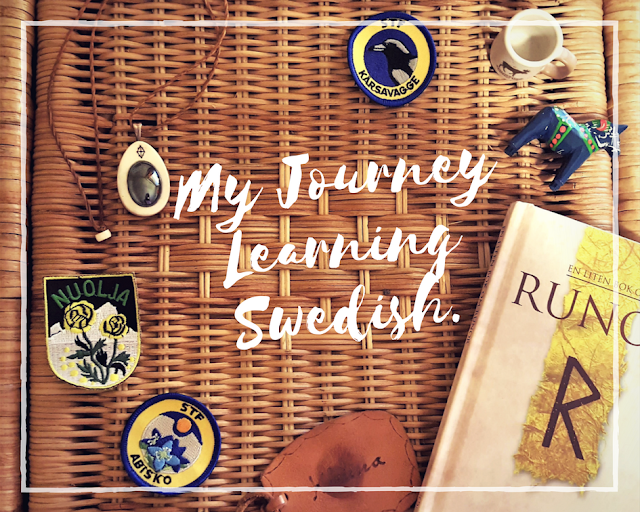Living Abroad: How to Maintain Your Cultural Connections
Living abroad, learning a new language and immersing yourself in a new culture can be wonderful things. However, after living in a different country for many years, especially from a young age, it can be easy to lose small grasps of your own cultural identity, especially of your language. This is something I've personally seen not only through myself, but through my brothers and parents.
 |
| My dad built a pergola with a viking-style dragon head (on its side in the photo) |
I've now lived almost ten years in Canada. I talk in English both in my community and in my head. As a result I sometimes use English terms for French words and forget how to say certain things in French. I also see my brothers talk a lot in English with each other. Do they realize they'll lose their French by continuing like this on the long term?
 |
| I think my parents got this pin for their wedding |
Let's not
diverge any further from the actual topic of this article. Here are the five most important things that have helped me to keep my connections with my languages and cultures:
- Find things you enjoy that can help you maintain your language and culture:
For me that has definitely been books and music, as well as movies. For instance, I've just started listening to music in Swedish. After building up a playlist of Swedish songs on Spotify and continually exposing my brain to Swedish songs and making efforts to speak in Swedish, I've come to speak a lot more spontaneously in Swedish. I've come to feel much more of an interest for learning it as well.
- Learn new things about your culture:
There are always new things we can learn. Even if you already have a lot of knowledge about your culture, learning new things about it can increase your curiosity and interest in your own culture.
- Maintain your language skills by speaking in your language regularly:
- Have people with who you can talk to in your language and who share your culture:
Whether it's with family members, friends, someone new you met, or through pen pals or online conversations, its important to have social interactions in your language. If you like to spend time online, find communities on Instagram, Tumblr, Google+, and so on, where you can speak in your language; you'll maybe even make new friends! One thing that has helped me personally has been doing volunteer work for my city's small francophone community.
- Last but not least, and this probably the most important point: don't let others make you feel ashamed of your culture:
The reason why I'm saying this is because it happened in my mother's family. My great-grandparents talked Finnish, which at the time when they lived was badly seen in Sweden, at least in the town where they lived. My grandmother knew Finnish, but she was too ashamed of it to speak in it. It is only now, at 93 years old that she started speaking Finnish again. In the end, the family ended up losing a cultural heritage. It's important to feel good about your culture, its a part of your identity after all.
This concludes my list. I certainly hope that this will help you maintain your ties to your own cultural heritage. Do you have other tips to maintain your connection with your language/culture?
This concludes my list. I certainly hope that this will help you maintain your ties to your own cultural heritage. Do you have other tips to maintain your connection with your language/culture?
With love,
Mara



Comments
Post a Comment